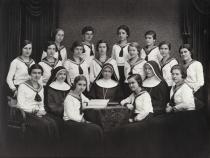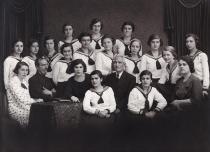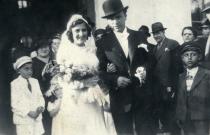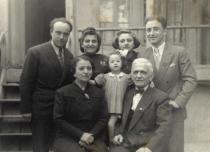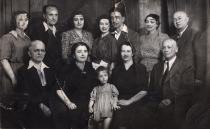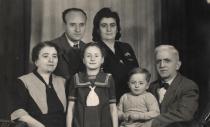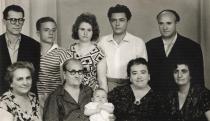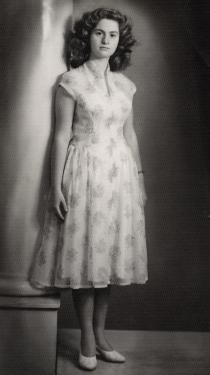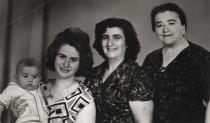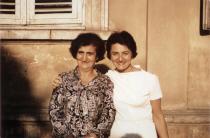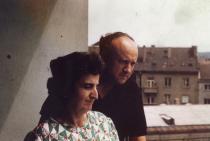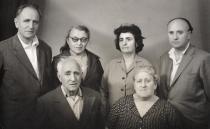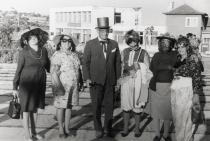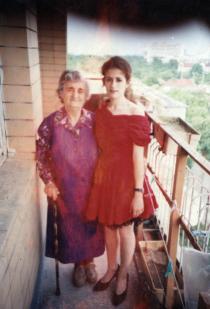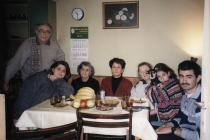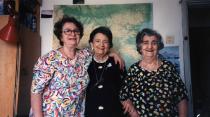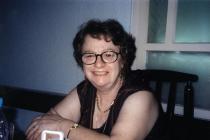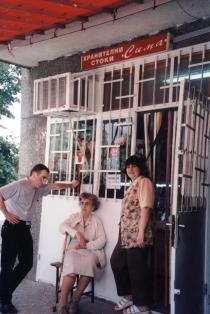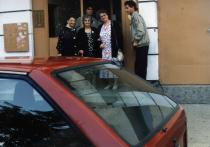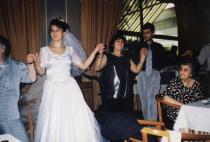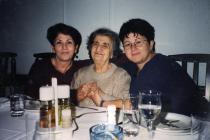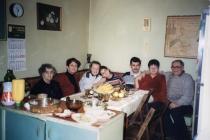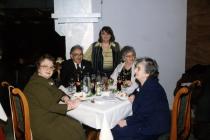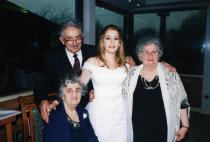This is a unique picture of four female generations in our family. The photo was taken in 1961 in Ruse.
From left to right are: Irena Cestnik, Beti's daughter; my daughter Buena or Beti Mois Cestnik, nee Yulzari, I, and my mother Rashel Maier Beniesh, nee Farchi.
My granddaughter Irena Cestnik is still not married; she lives and works in Sofia where she is a teacher in Ivrit at the Jewish High School. She is a philologist.
My daughter Buena lives and works in Ruse, where at the moment she is a teacher in 'automated machines' at the Technical High School for Clothing and Footwear.
She is an engineer. She is married to Svetlozar Cestnik. They have only one child.
I have been a pensioner since 1971. Before that I worked for 21 years at the state-owned enterprise for transport and cargo vehicles 'DATA' [state-owned automobile enterprise], since 1950. I was a planner in the cargo department.
In 1940 I married Mois Eliezer Yulzari. My husband was a communist, but despite that he entered a synagogue in order to marry me. In 1946 I gave birth to my son, Shemuel, Sinto, Yulzari, and my daughter, Buena, was then already six years old. We brought them up as Jews and because of that they have had Jewish identity since their early years. At present my son is an associate professor in child pedagogy at the Veliko Turnovo University. He had been a teacher at the Institute of Pedagogy for a long time, after that he became a Ph.D., and later an associate professor.
My mother was a freedom-loving woman. She had graduated from the 'Santa Maria' French Girl's High School in Ruse, which was financially supported by the Catholics. To a certain extent she was conservative, because she insisted that women can sew and clean, rather than know as much as men do. Mom was a member of the Ruse's women organization WIZO, but in spite of that she was conservative to a great extent, because she didn't allow me to study pharmaceutics- and that was my dream - because women, according to her, were not supposed to know as much as their men did. As all the married woman then, she was a housewife. She took care of me and my brother Samuel Sinto Beniesh.

